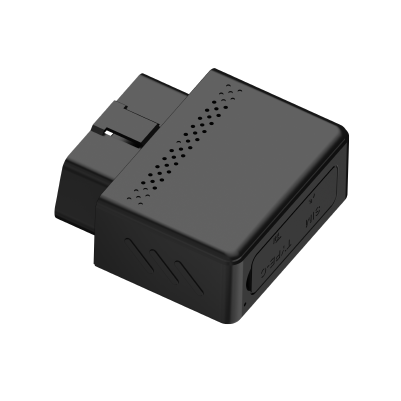Government or corporate vehicles play an important role in improving work efficiency and optimizing travel steps. However, when the fleets of governments and enterprises reach a certain scale, human management and monitoring alone are not enough. With the continuous expansion of the scale of vehicles, problems such as the large number of vehicles, different conditions, private use of vehicles, and differences in vehicle demand have gradually become prominent. This brings many challenges to vehicle management, among which, the main problems are in the following aspects:
- Unauthorized use: Government/enterprise vehicles used for private purposes will generate additional gray fees and cause serious waste of resources. If it is not managed, it will affect the normal management of the vehicle.
- Concealment of fuel expenses: Drivers take advantage of their positions to conceal fuel expenses, tolls, parking fees and other expenses in order to obtain more reimbursement and increase unnecessary operation and maintenance costs for the company.
- Passive sabotage: frequent occurrences of passive sabotage by drivers and lack of sense of responsibility at work lead to vehicle delays, affect the company’s operational efficiency, and even leave a bad impression on customers, partners and leaders.
- Unsafe driving: Improper driving behaviors of drivers such as speeding and ignoring traffic lights will not only cause personal safety threats, but also bring certain risks and interests damage to the company.

Based on the above, as the public property of the government/enterprise, on the one hand, vehicles are used in a wide range, and the number of users is diverse, and the degree of wear and tear is often greater than that of ordinary vehicles. On the other hand, a larger fleet size will increase the difficulty of vehicle management and be more prone to accidents. However, the purchase and maintenance costs of vehicles are high, and inefficient vehicle management will not only affect vehicle scheduling, but also reduce the fleet’s crisis management capabilities, thus affecting the fleet’s operation and maintenance efficiency.
How to keep the vehicle in the best condition and how to maximize the value of the vehicle are issues that both the government and enterprise fleet managers need to consider. In order to better grasp the running status of vehicles, the government and enterprises widely adopt government/enterprise vehicle management solutions based on 4G GPS trackers for the management of public vehicles.
What are the specific advantages of the government/enterprise vehicle management solution integrating high-precision positioning equipment and intelligent management platform, and how is it realized?
Next, the article will introduce the hardware foundation of the program and the specific auxiliary functions of the program, further explain its importance in the modern government/enterprise public vehicle management, and also provide a reference for the government/enterprise to choose a vehicle management solution.
1. Different types of vehicle tracking devices
As the hardware basis of the vehicle management solution, 4G GPS tracker is a device that can obtain information such as vehicle location, speed, and mileage in real time and realize remote monitoring. It can upload vehicle driving data to the cloud server through satellite positioning and 4G network transmission technology for managers to monitor, dispatch and manage in real time.
The 4G GPS trackers currently on the market are mainly divided into two types: wireless and wired, and their differences are as follows.
01 Wireless GPS tracker
Wireless GPS tracker is a device without external wiring and does not need to be connected to an external power source. Its battery life is affected by the capacity of the built-in battery and the positioning frequency set by the owner. The most obvious advantages that result from this are its portability and installation flexibility. Such devices are often equipped with large-capacity batteries and can be placed anywhere in the vehicle with excellent concealment.
However, wireless GPS trackers also have some disadvantages compared to wired 4G GPS trackers. The first is its limited battery life and lifespan, which may require frequent recharging or battery replacement over long-term use. Secondly, the wireless GPS tracker does not support some additional functions, such as remote fuel and electricity cut-off and vehicle fault diagnosis. In addition, in order to save battery power and prolong battery life, wireless GPS trackers usually send positioning data packets at intervals. This means that in some emergency situations, the device may not be able to obtain vehicle location information in real time.
02 Wired GPS tracker
Wired GPS tracker is mainly powered by connecting the vehicle’s power line and ACC line, and can be subdivided into OBD interface GPS tracker and wired GPS tracker. The functions of the two are similar, and the main difference lies in the way of installation and connection. The OBD interface GPS tracker can be easily inserted into the OBD interface for installation. The wiring type GPS tracker needs to be connected to the car power supply, the installation location is limited and requires professional and technical personnel to install, and the installation cost is relatively high.
In practical application, the function of wired GPS tracker will be more powerful. This kind of equipment can realize 24-hour real-time positioning, and at the same time, the positioning accuracy is higher. In addition, the wired GPS tracker also has additional functions, such as reading the basic parameters of the car such as fuel consumption, mileage and starting status, etc., and realizing remote power off and power control.
2. The function of 4G GPS tracker
In addition to the appearance, the GPS tracker also needs to have some functions to better meet the management needs of the vehicle. These features include but are not limited to accurate positioning, small size, convenient installation and stable signal. We take Jimi VL512 OBD 4G GPS tracker as an example to further explain.
High precision positioning
VL512 adopts multiple positioning technologies, including GPS/Beidou, which can obtain the location information of the vehicle in real time. Through the GPS + Beidou dual-star positioning technology, the device can achieve meter-level positioning, greatly improving positioning accuracy and wider coverage.
LTE & GSM network
Communication via 4G LTE networks with 2G GSM fallback.
Small and convenient
Without reducing the functional configuration, the smaller the size of the tracker, the higher the technical complexity. Arranging so many lines and components in a limited space tests the comprehensive capabilities of the product. Among them, the most important parts of the locator are the GPS module and the LTE antenna. They are the basis of signal strength and stability, but both occupy a relatively large space. Under the premise of ensuring the signal quality, the weight of VL512 is only 42 grams, and the thickness is only 22 mm. The volume is compressed to a reasonable range, which neither occupies the space in the car nor hinders driving.
In addition, the VL512 device also adopts the OBD II standard interface, which can be adapted to the mainstream models on the market. Just plug the device into the vehicle’s OBD interface, the installation is complete and you can start using it. The whole process is simple and fast.
4G full Netcom
VL512 adopts 4G Cat.1 communication technology, which can realize seamless access to existing LTE network. 4G Cat.1 communication technology not only guarantees high-speed, high-precision and safer device data transmission, but also enables device communication to complete transmission with lower power consumption, and is more cost-effective.
Multiple alarms
VL512 supports multiple alarm functions, including vehicle movement, speeding, geo-fence entry/exit, etc. When the car vibrates abnormally, enters or exits the fence or speeds up, the device will automatically send out an alarm sound to remind the manager of possible dangerous situations.
The device can also analyze driving behavior. For example, when it detects sudden braking, sharp turning, sharp accelerator and speeding, the device will automatically alarm, allowing drivers to understand and adjust driving behavior in time to ensure driving safety.
Remote Listen-in
Inconspicuous mic allows for remote monitoring and recording of ambient sounds around the device.
Application of 4G GPS tracker in fleet management
In the 4G network era, the IoT vehicle location service provided by the 4G intelligent positioning terminal needs to be fully integrated with the intelligent management platform to empower vehicle management. Just like the Tracksolid management platform specially built by Jimi, it supports large-scale device access and can manage tens of millions of vehicles at the same time, including various types of vehicles such as buses and school buses. In addition, Tracksolid also provides sufficient cloud storage space, security firewall and encrypted transmission and other technical means to ensure the integrity and security of vehicle data.
Only by fully integrating advanced technologies such as big data and artificial intelligence can we provide more comprehensive and efficient management for vehicle management.
Therefore, the government/enterprise vehicle management solution of the Jimi IoT software and hardware integration platform brings effective assistance to vehicle management, as follows:
01 Avoid unauthorized vehicle use
The equipment and platform support the multi-vehicle monitoring function. Managers can view all vehicle location information, positioning methods, and residence time at any time to ensure real and effective vehicle usage behavior and prevent resource waste.
02 Strengthen safety management
The GPS device can detect unsafe driving behavior, and the intelligent platform can issue warnings and record them in real time. This helps to detect and stop violations in time, thereby improving transportation safety and safety awareness of drivers.
03 Data management improves efficiency
Managers can query vehicle records online and easily organize massive data. This can greatly reduce the workload of vehicle management, improve work efficiency, and reduce labor costs.
04 Report statistics support data analysis
Detailed reports include mileage, speed and fuel consumption, etc., which can help analyze vehicle driving conditions and provide data support for rational scheduling of vehicle resources. Managers can further address the underreporting of fuel costs, as well as reduce transition costs and improve transportation efficiency, among other things.
05 Vehicle maintenance and fault monitoring
By monitoring the real-time data of the vehicle, managers can prevent potential vehicle failures and perform maintenance to ensure that the vehicle is in good working condition. This not only prolongs the service life of the vehicle, but also avoids losses due to failure.
To sum up, 4G GPS tracker, as a high-precision positioning and real-time monitoring tool, can help companies solve many problems, such as unauthorized use, dangerous driving, and irregular cost management, making travel safer and more transparent. By incorporating all government/enterprise vehicles into the information management platform, positioning and trajectory supervision can be realized, which will help promote the standardized deployment and use of government/enterprise vehicles and improve the level of informatization and automation supervision.
A good vehicle management solution is responsible to both the government/enterprise and the driver. It not only needs to solve the existing vehicle usage problems, but also realizes low-cost and high-efficiency management and ensures safe driving for employees.
 EN
EN ES
ES PT
PT TH
TH VN
VN JP
JP



